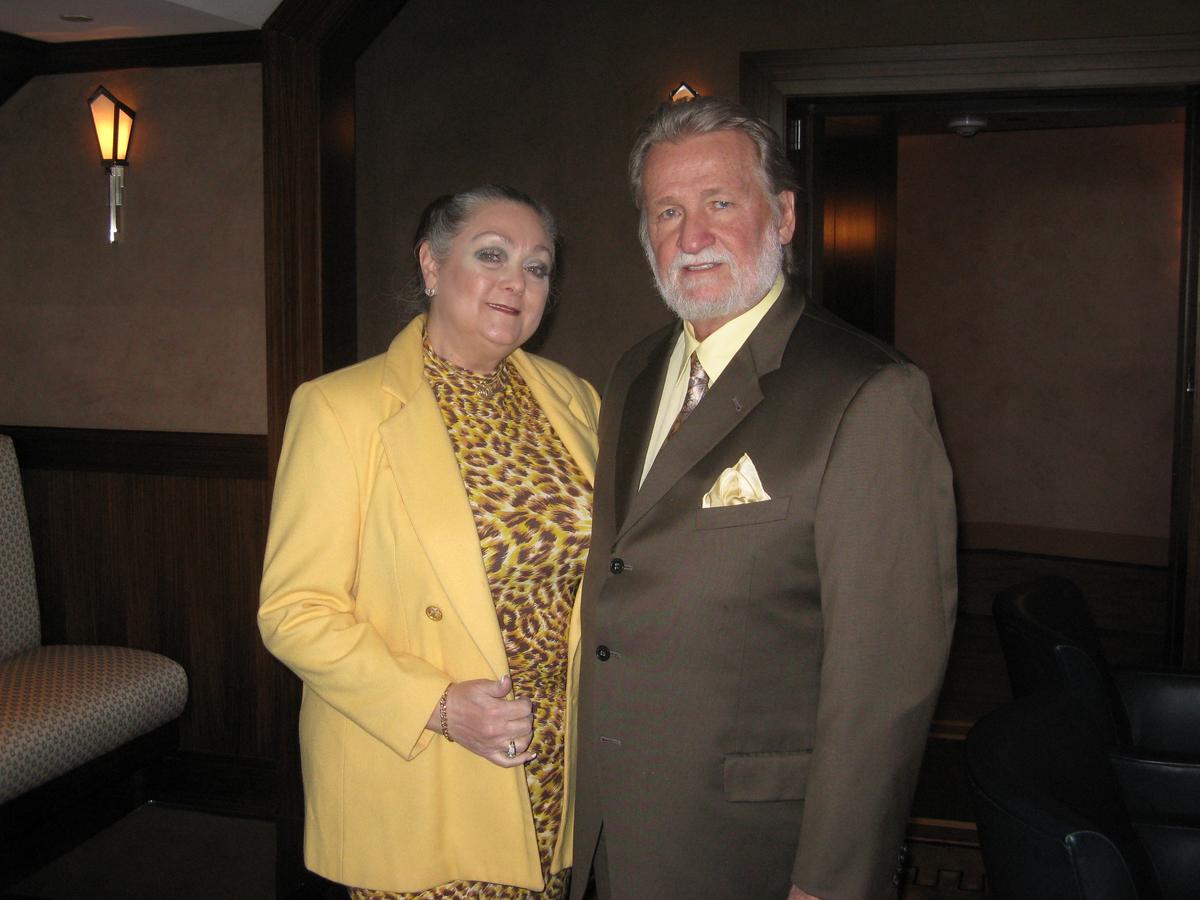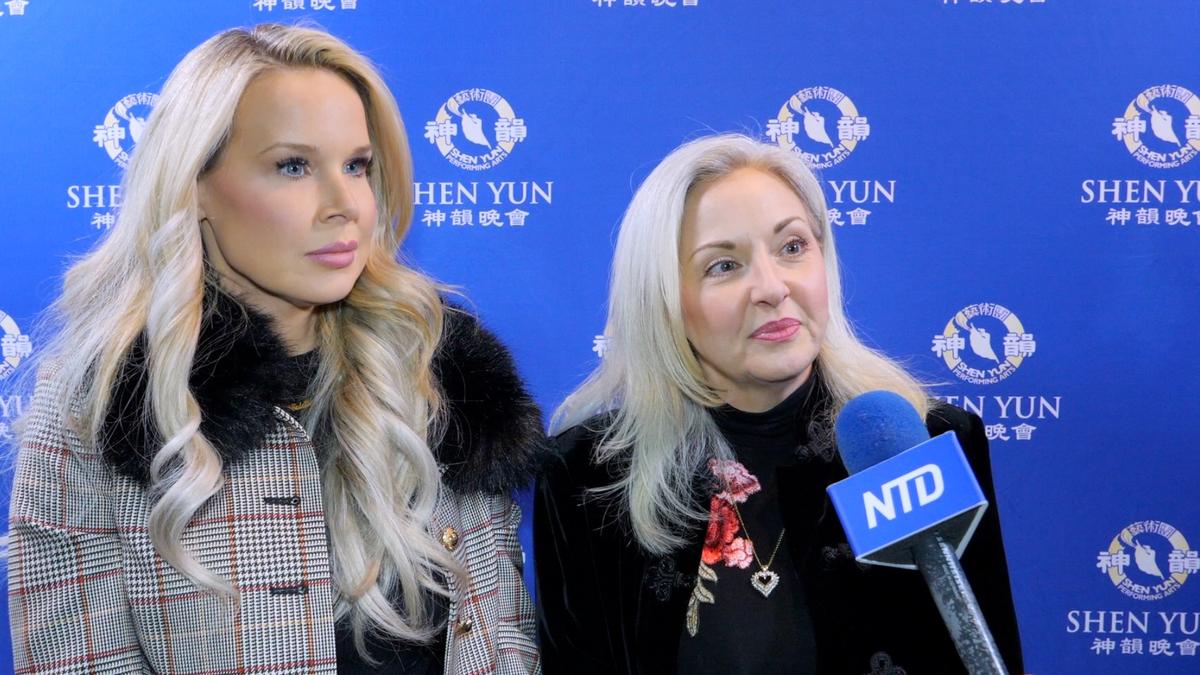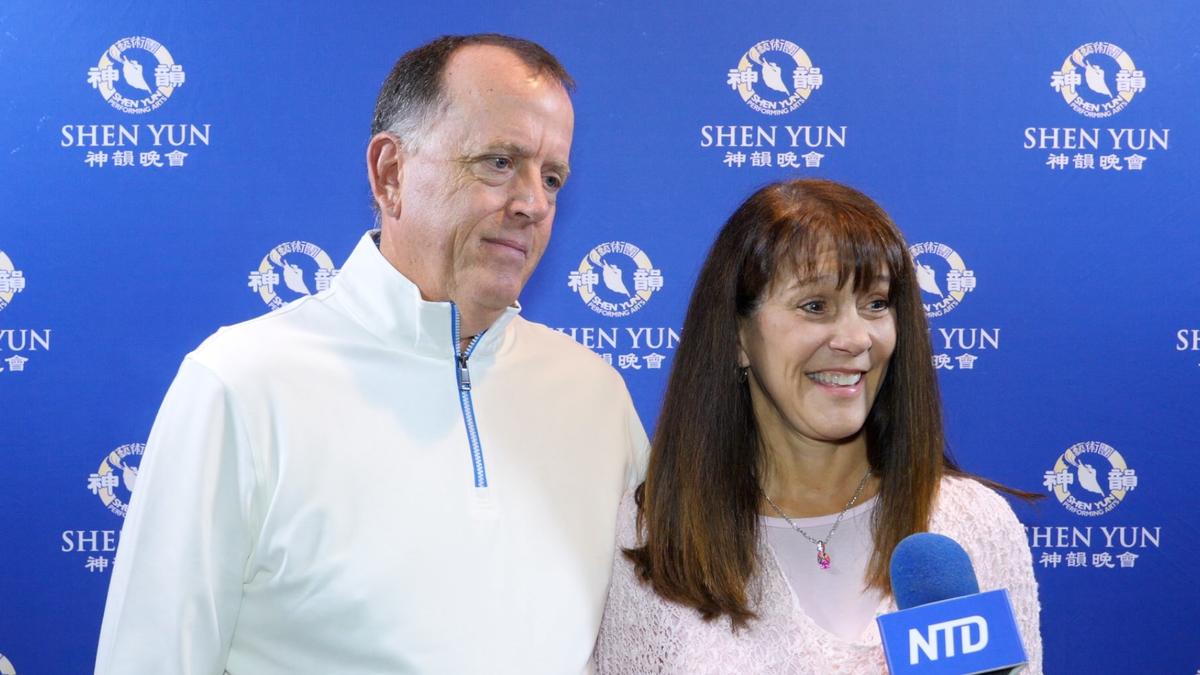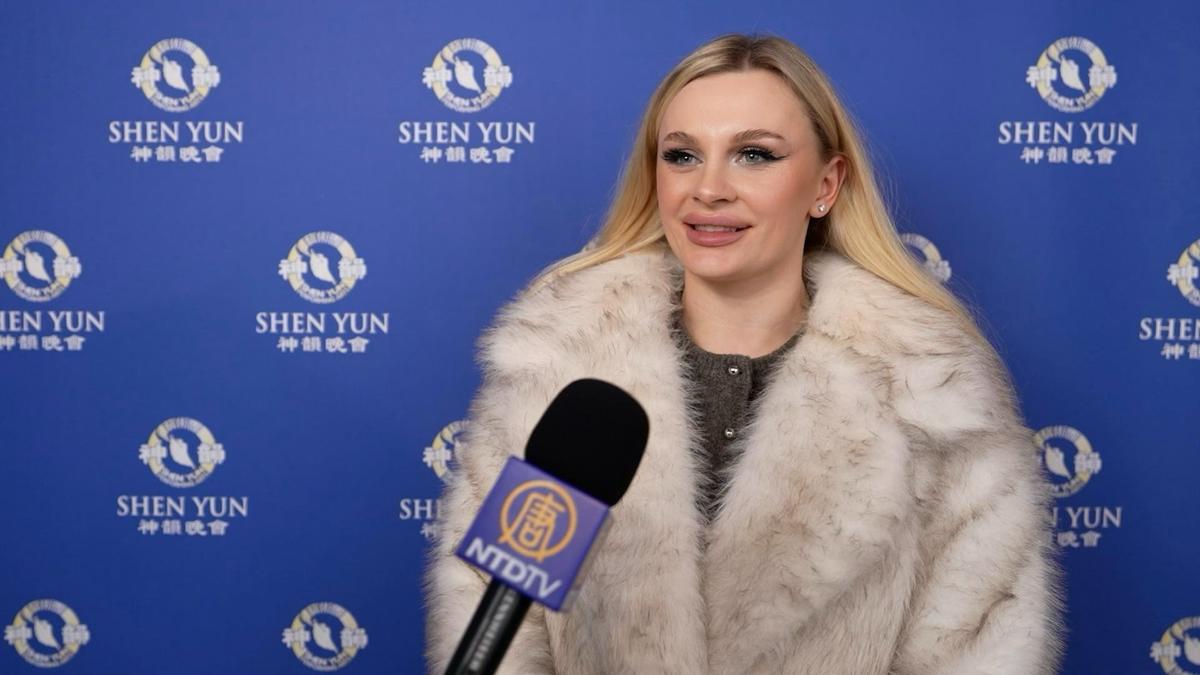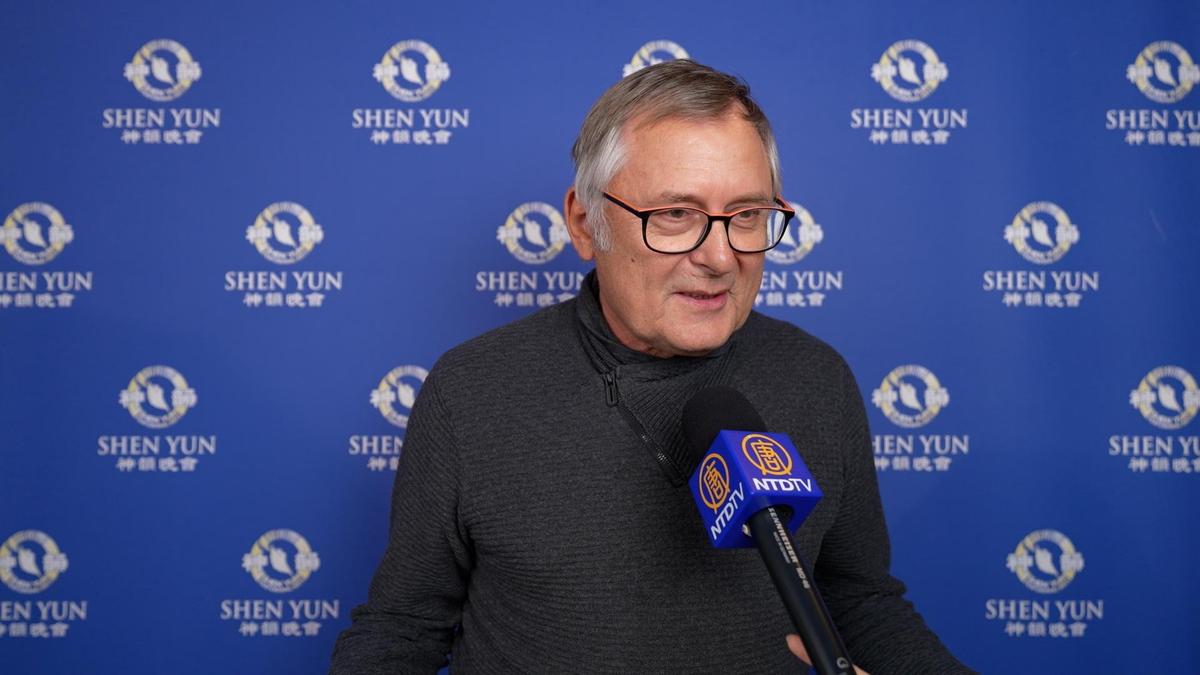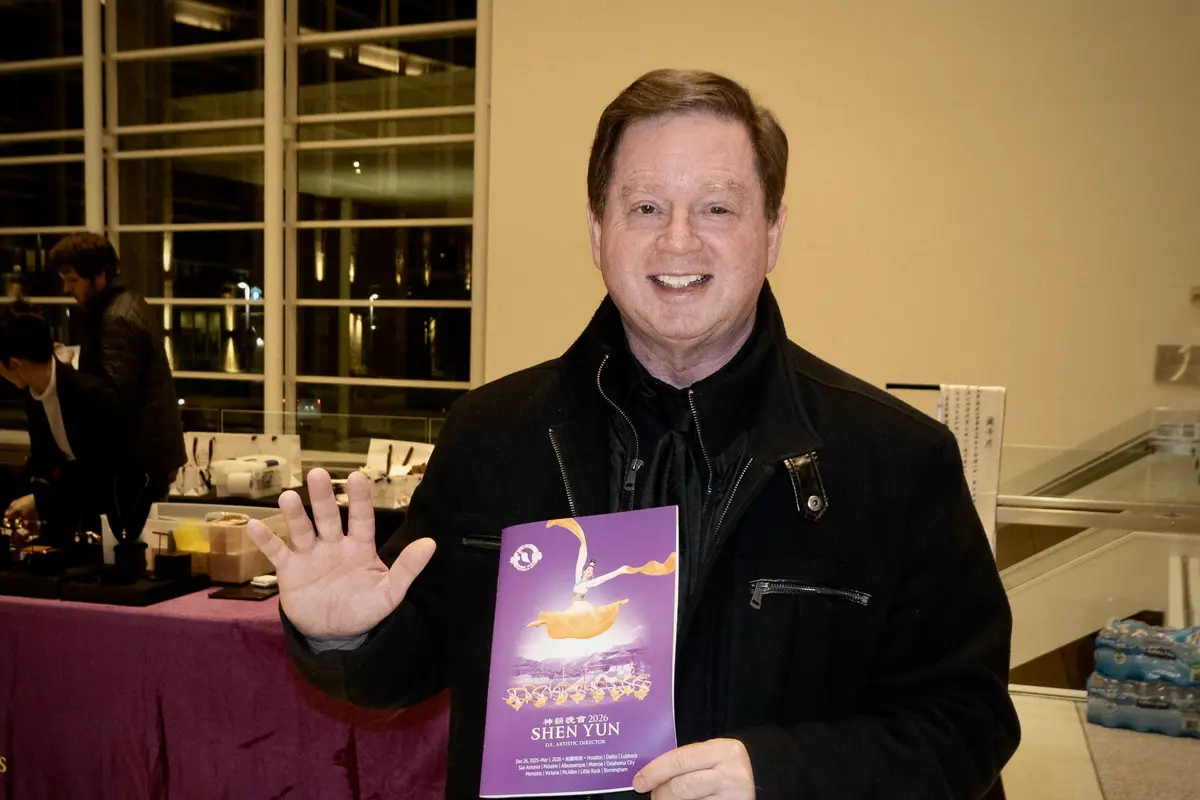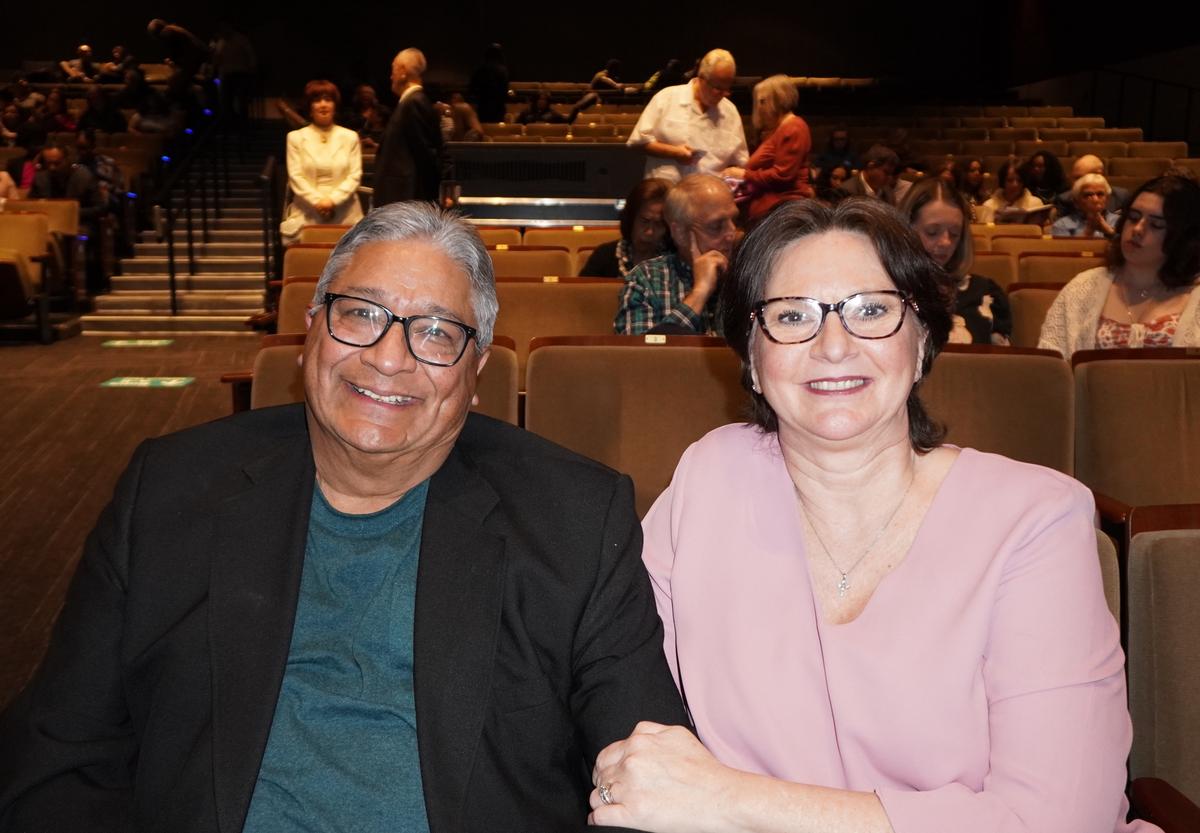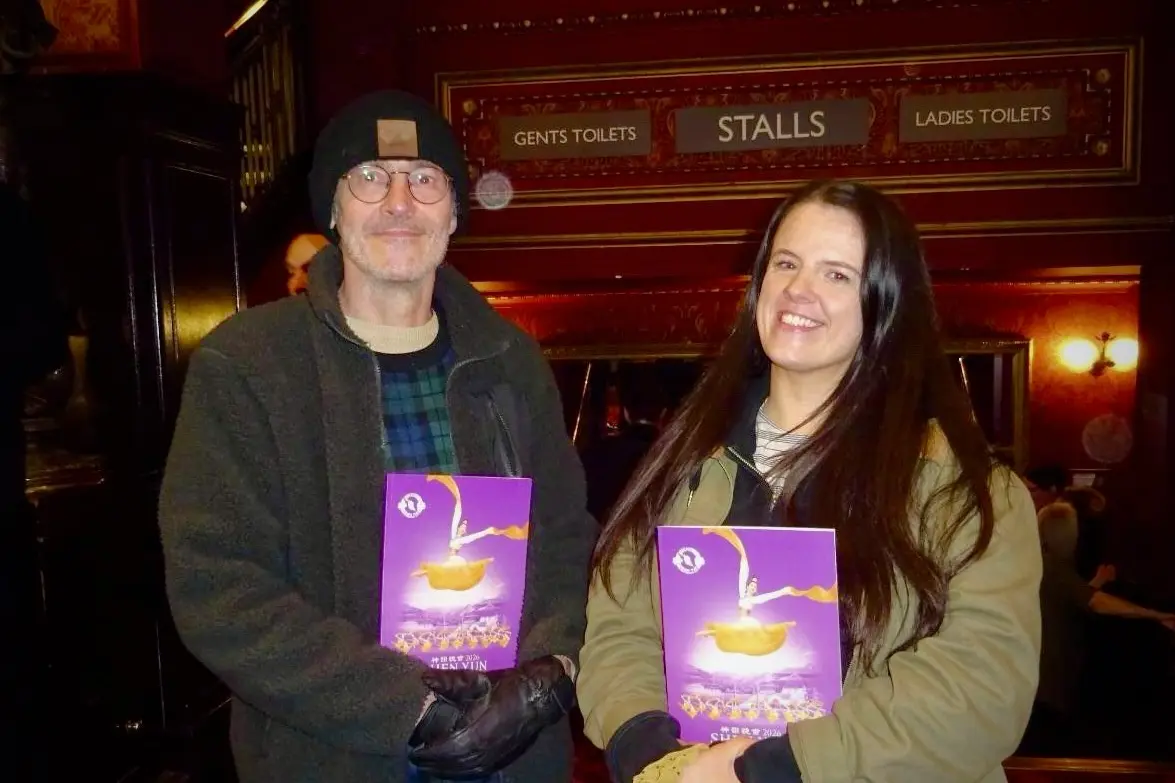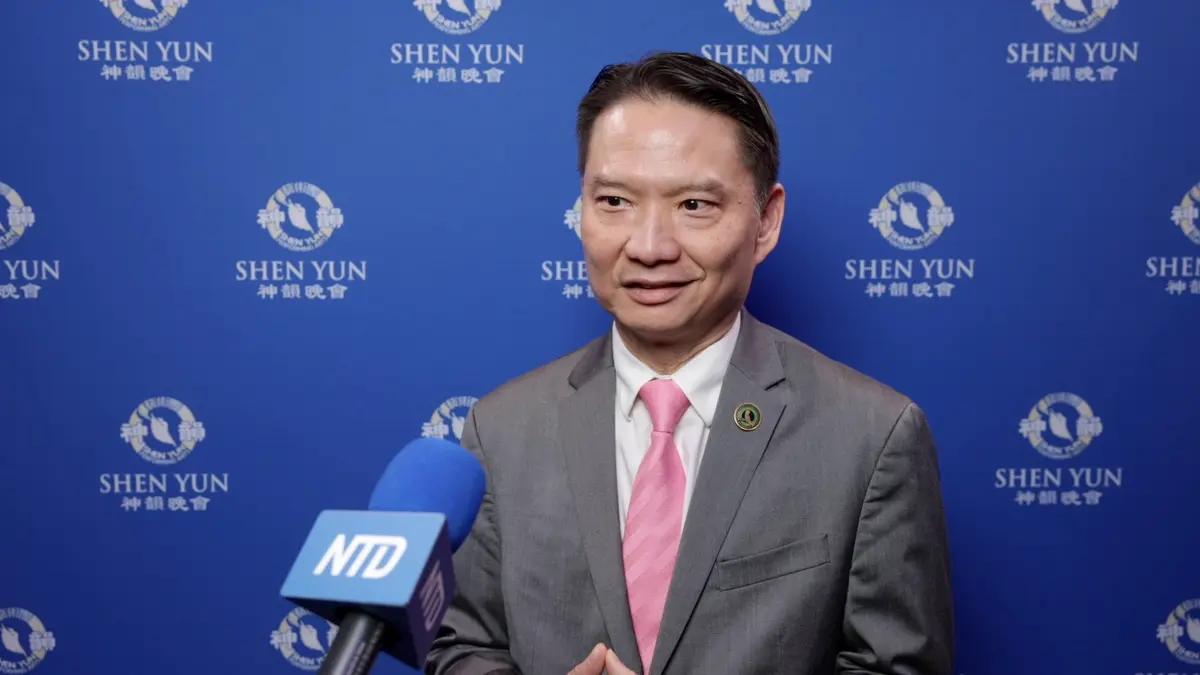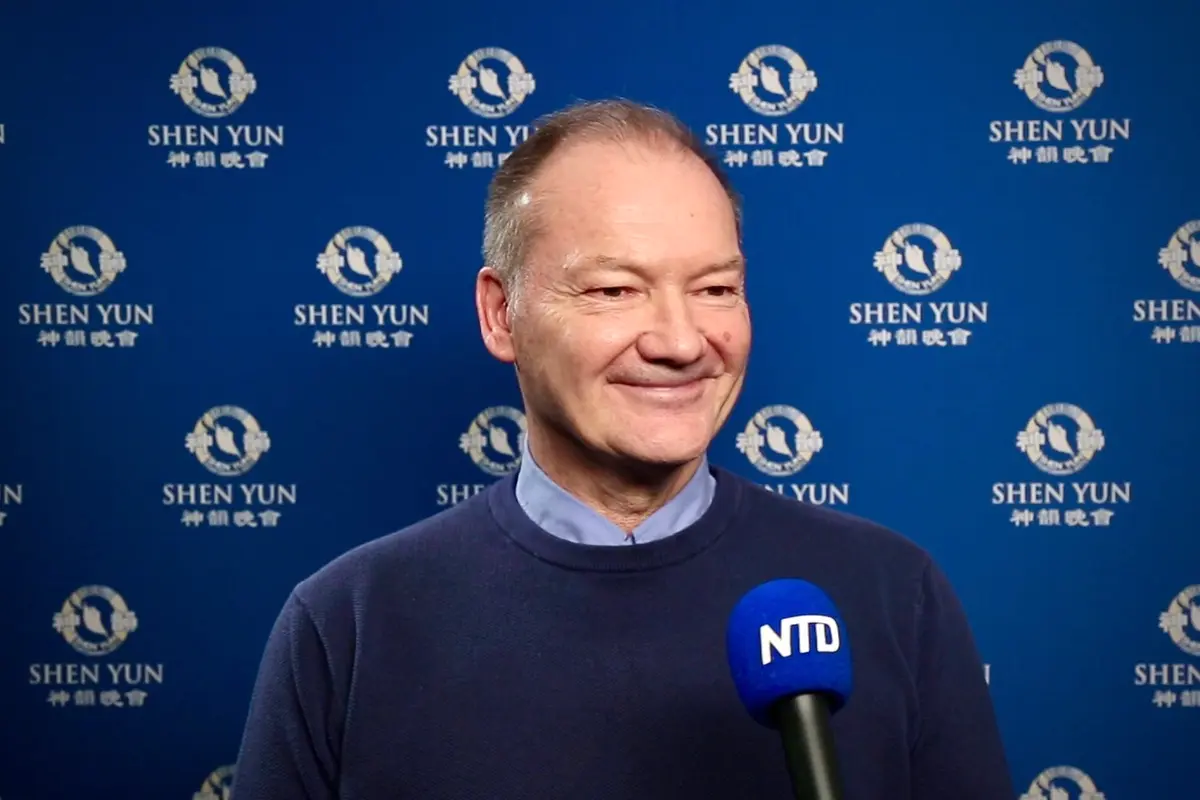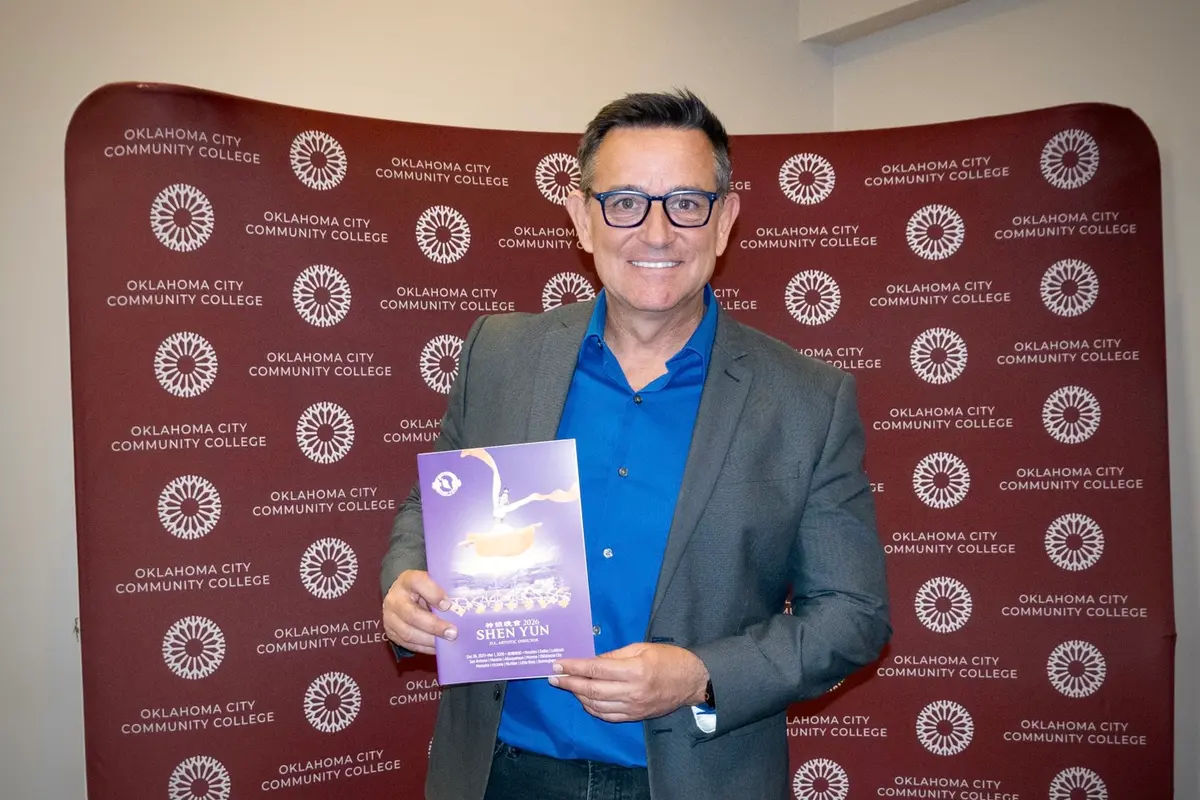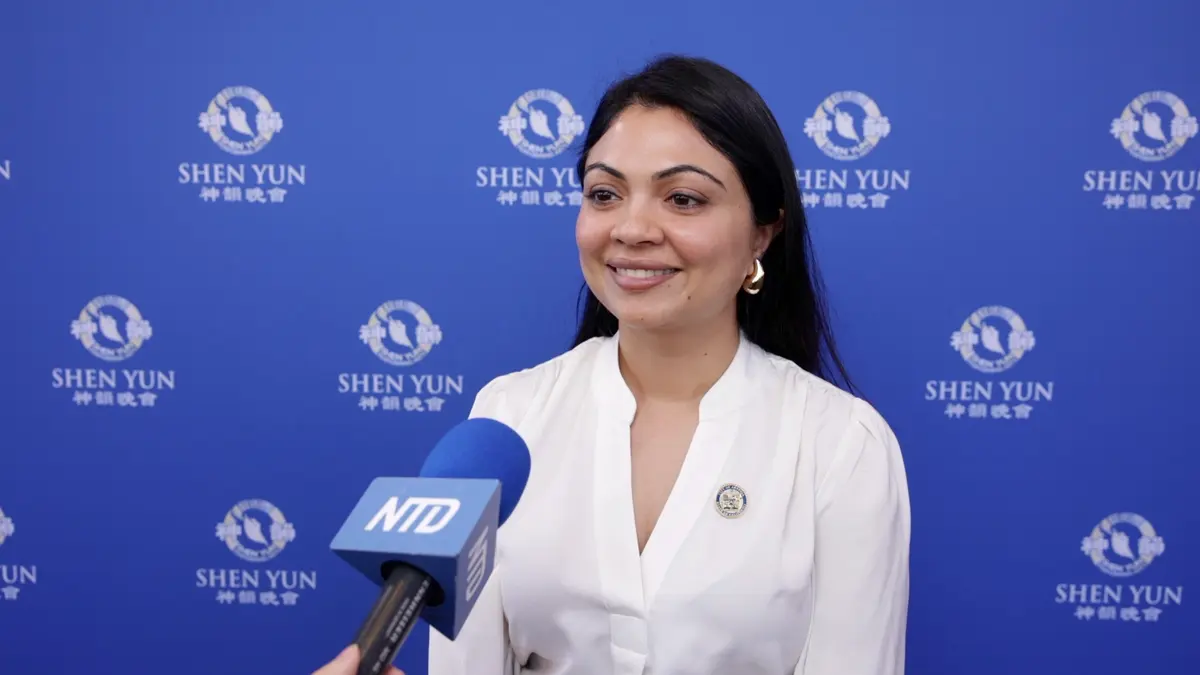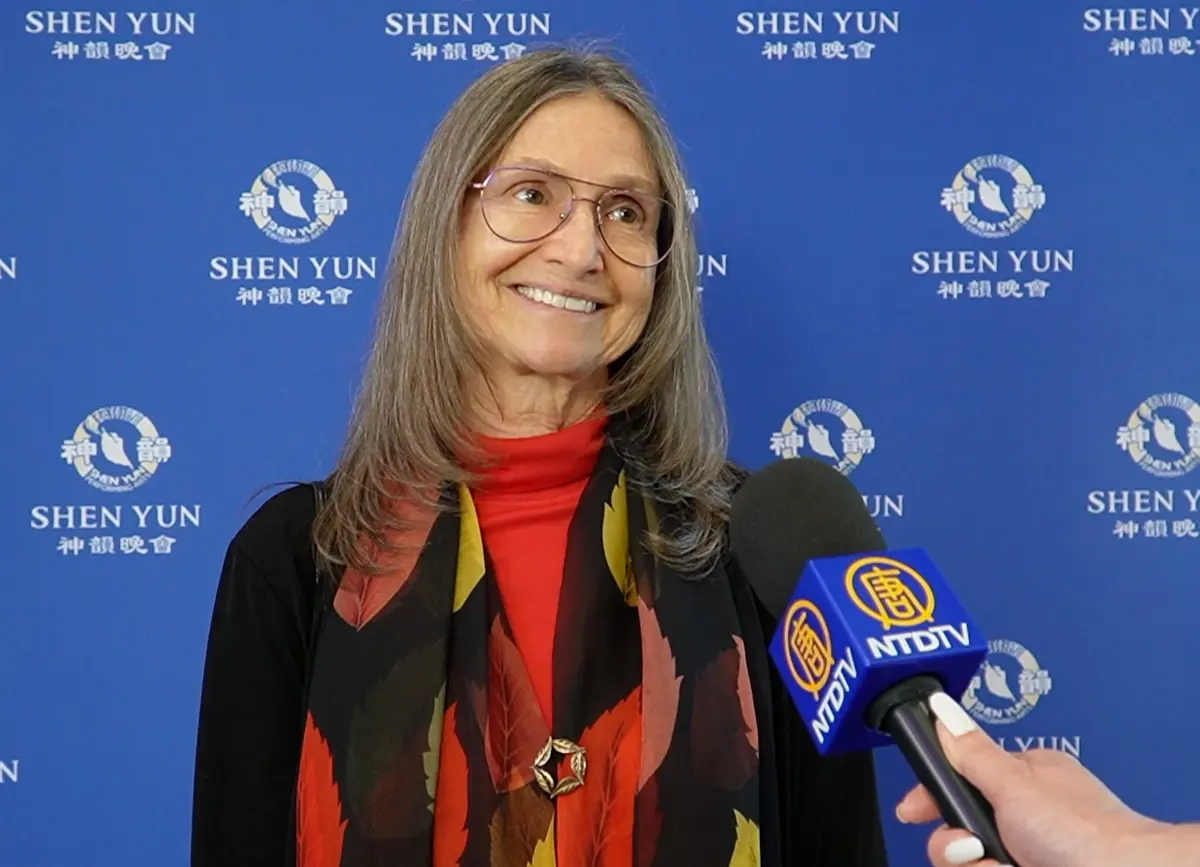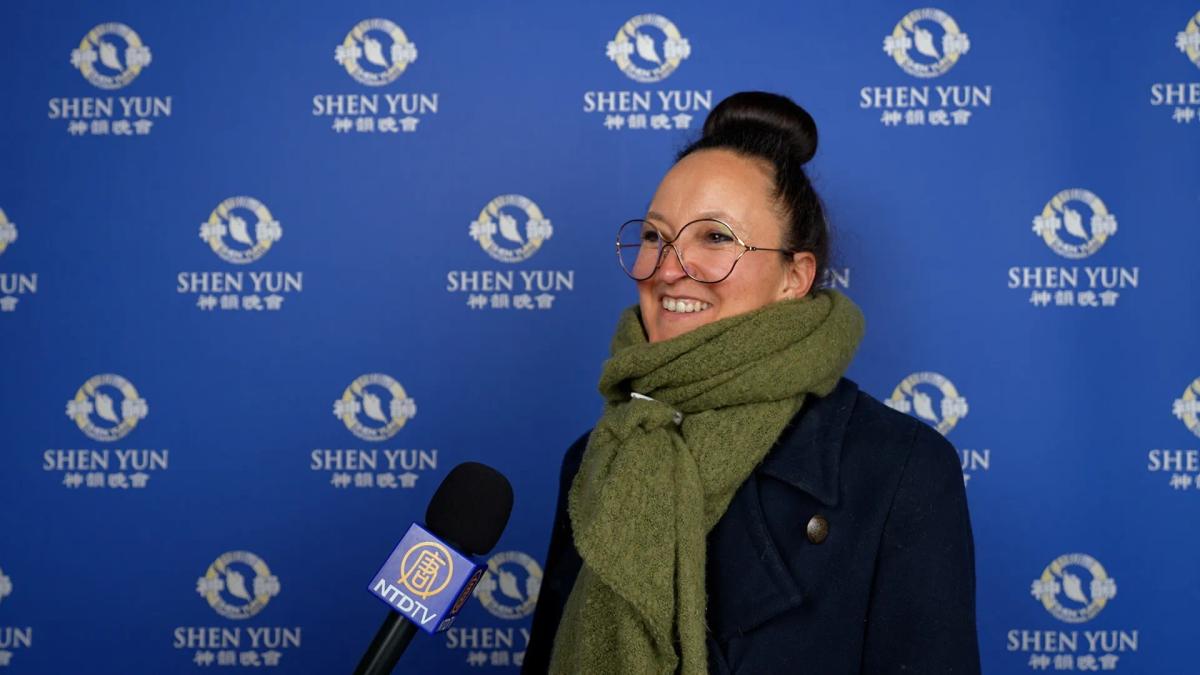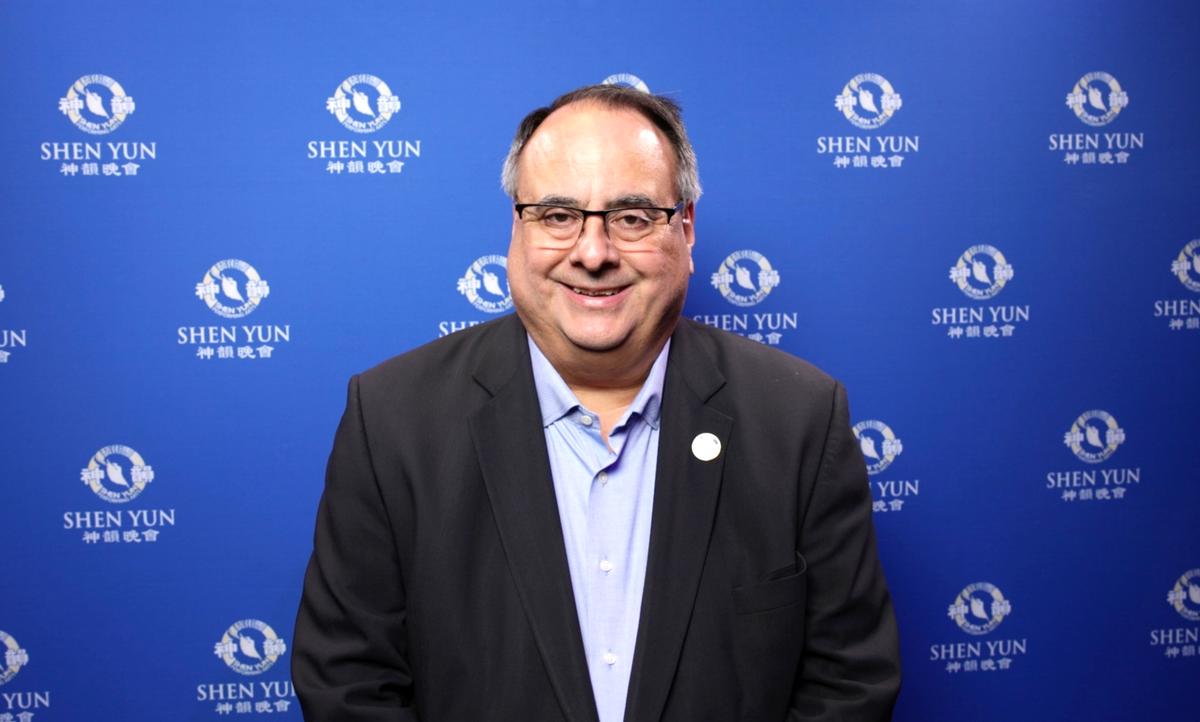LAS VEGAS—“It was superb. The singers were absolutely magnificent, and the dancers of course were superb. My overall impression was very, very favorable,” said Rabbi Mel Hecht about Shen Yun Performing Arts’ last performance at the Reynolds Theater in The Smith Center for the Performing Arts, on Feb. 23.
Rabbi Hecht attended the show with his wife, Dr. Micki Hecht, who works in the entertainment industry doing staging and production. The couple had also served as citizen ambassadors in 1987 in the Soviet Union, and have gone around the world to help people. Among many other accomplishments, Rabbi Hecht also delivered the opening invocation for the U.S. Senate in 1997.
The Shen Yun website describes what audiences experience: “A Shen Yun performance features the world’s foremost classically trained dancers, a unique orchestra blending East and West, and dazzling animated backdrops—together creating one spectacular performance.”
The bulk of a Shen Yun performance is classical Chinese dance, with segments lasting no longer than 10 minutes portraying a variety of tales and aspects of China’s traditional culture.
Supporting these dances are the animated backdrops, which bring the contexts of the dances to life.
“I felt that the multimedia was very, very clever indeed, the way they would jump in and then come back, just brilliant,” said Dr. Hecht, commenting on how in some of the performances the dancers interact with the screen, appearing to drop from the skies or leap into flight.
“The two together was superb,” said Rabbi Hecht, on the combination of the dance with the backdrop.
Another primary aspect of Shen Yun is the live music, with all of the dance pieces set to original scores played by the Shen Yun Orchestra, which combines Chinese and Western instrumentation.
“The days of the large orchestras have long passed, and so when you come into a production that has that as part and parcel of what is taking place, it’s very impressive,” said Rabbi Hecht, who is a classically trained musician, as well.
The Hechts carefully chose their seats so that they’d be able to see the orchestra, but still be close to the stage.
“It was wonderful to see so many musicians,” said Dr. Hecht.
One piece in particular struck Rabbi Hecht, however—a solo performance on the erhu, a two-stringed bowed instrument sometimes compared to a violin, and known for its capability of evoking vocal-like sounds.
“Oh my God, that was absolutely unbelievable. It truly was,” said Rabbi Hecht. “To get that sound out of such a simple instrument was just magnificent.
“Knowing instrumentation and whatnot, to be able to get the kind of sound she produced out of it, I thought was almost miraculous, I really did,” he said.
Dr. Hecht agreed it was an extraordinary piece: “It was heavenly, absolutely heavenly.”
Shen Yun’s mission is not just to entertain, but to revive China’s profound 5,000-year-old culture and spread it to the world.
“I thought it was a tremendously historical, cultural presentation of one of the most ancient civilizations that has been on the face of the Earth. And as a Jew whose own culture is based on history, I thought it was wonderful,” said Rabbi Hecht.
Some of the pieces in Shen Yun touch on modern China, particularly the spiritual devastation that has taken place at the hands of the current Chinese regime, which has actively undermined and destroyed religious and spiritual institutions. The most egregious happening today is the persecution of Falun Dafa, a meditation practice based on truthfulness, compassion, and tolerance.
“What is also universal is the ability of all humanity to rise above the persecution and to maintain their dignity and their freedom and their ability to rise above, and to inspire. And that’s what this production was all about,” he said.
“For a human being to rise above man’s inhumanity to man, which happens everywhere,” agreed Dr. Hecht.
“What I lament is that the present Chinese government is losing out on something that celebrates the soul of the Chinese,” said Rabbi Hecht.
He experienced a similar spiritual vacuum when he visited Russia in 1987.
“The Russians we met were really looking for their soul, their spirit, and I don’t mean necessarily religious, but simply communism robbed them of their soul and their spirit, and they’re going to spend a long time trying to discover it, and the same thing with the Chinese,” he said.
“You can’t do that to yourself. ... They’re so rich in culture and history and whatnot, and to not allow its people to meditate, is what we call a ‘shanda,’” he said.
“A ‘shanda’ is approximately a sin, but it destroys their inner being,” continued Rabbi Hecht. “That’s not going to portent well for them in the future. It’s a shame in one sense that this production had to be from New York and not from China.”
Reporting by Albert Roman and Ben Bendig
New York-based Shen Yun Performing Arts has four touring companies that perform simultaneously around the world. For more information, visit Shen Yun Performing Arts.
The Epoch Times considers Shen Yun Performing Arts the significant cultural event of our time. We have proudly covered audience reactions since Shen Yun’s inception in 2006.

